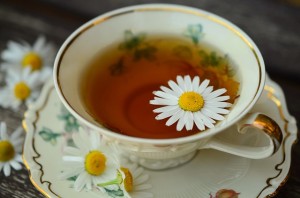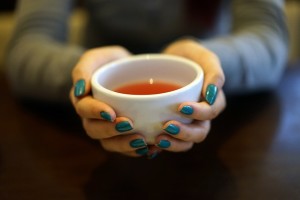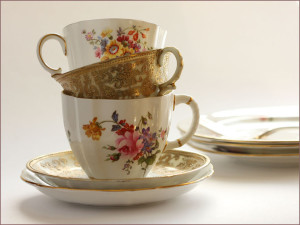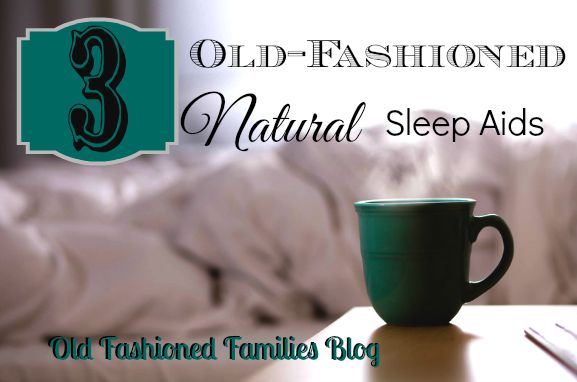While everyone has different needs when it comes to sleep, I think everyone can agree that getting a good night’s sleep is the first step to having not only a good day but maintaining personal health. However, there are any number of things that can effect your sleep schedule including stress, personal schedules, work or health reasons.
If you find yourself laying in bed at night, unable to catch some shuteye but you don’t want to turn to addictive and sometimes unhealthy sleep medications, then here are some natural herbs which, when taken as a supplement or as a nightly tea, can help you relax and get the sleep you need.
Chamomile
Easily the most commonly-known and widely use herb on this list, chamomile is the mildest sleep aid listed here and really is better for simply unwinding more than as an actual sedative. There are two different kinds of chamomile: German and Roman and while they both work, there are mild differences (mostly in growing). When most people think of chamomile tea, chances are German chamomile is what they are thinking.
 It’s worth noting that chamomile can cause allergic reactions in people with ragweed allergies or allergies to similar flowers like chrysanthemums. While allergic reactions are extremely rare (Mother Earth News says only 5 were reported between 1887 and 1982), if you have these allergies use caution with dosage at first. Chamomile can also react with some drugs taken as blood thinners and shouldn’t be taken by pregnant women. However, for most people the herb is completely safe.
It’s worth noting that chamomile can cause allergic reactions in people with ragweed allergies or allergies to similar flowers like chrysanthemums. While allergic reactions are extremely rare (Mother Earth News says only 5 were reported between 1887 and 1982), if you have these allergies use caution with dosage at first. Chamomile can also react with some drugs taken as blood thinners and shouldn’t be taken by pregnant women. However, for most people the herb is completely safe.
Chamomile is excellent when brewed into a light tea and when brewed properly should not be very bitter and should have a mild apple taste. If over brewed, it will be sharp and a tiny bit of water and honey should make it more palatable.
To brew perfect chamomile tea: Pour boiling water over 1 Tablespoon of dried chamomile flowers and steep for 2 – 3 minutes, depending on desired strength. It is excellent with honey. If drinking to relax and not sleep, try adding rose hips for a citrus boost.
You can read more about Chamomile here or here, or talk to your doctor if you have any concerns.
Hops
When most people think about hops, beer is probably the first thing to come to mind. However, hops flowers by themselves can be brewed into a slightly bitter tea which will help relax and de-stress the drinker for a good night’s sleep. The plant is a mild sedative which can help aid insomnia as well as a handful of other benefits.
 There isn’t as much research done on hops as chamomile, but it is generally agreed that people who are depressed probably shouldn’t take hops and due to the sedative nature, it shouldn’t be taken with alcohol. Like all sedative herbs, this bitter tea may take up to a month before any effects are noticed.
There isn’t as much research done on hops as chamomile, but it is generally agreed that people who are depressed probably shouldn’t take hops and due to the sedative nature, it shouldn’t be taken with alcohol. Like all sedative herbs, this bitter tea may take up to a month before any effects are noticed.
Hops, even when brewed properly, are a little bitter and is something of an acquired taste. Chamomile can be combined with hops, as can lavender for more relaxation and to help offset the sharp aftertaste.
To brew perfect hops tea: Pour boiling water over 1 teaspoon of hops flowers and steep for 5 minutes. Honey, sugar or lemon can be added to taste.
There isn’t as much research done on hops as a tea, despite being used for centuries in various forms. Most information is about use in beer. However, if you want a little more information on hops in general, you can read about it here.
Valerian
Valerian is probably the most potent of the herbs on this list and has been used as far back as ancient Greece and Rome as a sleep aid. The herb has been studied extensively in various medical tests and clinical studies have actually proven it to be effective when taken regularly, with varying effects depending on the person.
 Despite its reputation, valerian is safe, although a few side effects such a headache and upset stomach have been reported on occasion. However, due to its calming sedative effect, it should not be taken at the same time as other calming medications, alcohol or antidepressants.
Despite its reputation, valerian is safe, although a few side effects such a headache and upset stomach have been reported on occasion. However, due to its calming sedative effect, it should not be taken at the same time as other calming medications, alcohol or antidepressants.
Valerian root is known for its unpleasant odor and brews into a very bitter tea. If you intend to drink valerian root tea, then it’s recommended to combine it with other ingredients such as mint, lemon balm, St. John’s wort or hops to not only increase potency but make it taste better. Like all things, however, eventually you will gain a taste for the tea.
To brew perfect valerian tea: Pour boiling water over 1 – 2 teaspoons of dried valerian root and let steep for 10 minutes. Milk, honey or sweetener can be added for taste.
There is a lot of information about valerian root on the internet, but if you’re wanting to learn more, then this page is a good place to start.
Do you use any of these or know of any other natural remedies for sleep? Share with us in the comments!


Great article! I just wish there were more than three of these!!!! Every once in a while, I’ll have a few weeks where I don’t sleep well at all. I haven’t been able to pinpoint a cause, but I’ll definitely give these a try next time I’m having trouble getting some shuteye. Thanks for sharing all the great info!
Well, there are other herbs that can help with relaxation and sleep, such as the california poppy or even lemon balm, but these three are the probably the better known and not controversial (like the poppy). I hope it helps though! Thanks for reading and commenting, Kelsey!